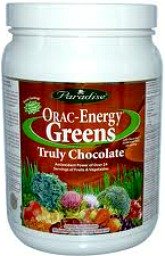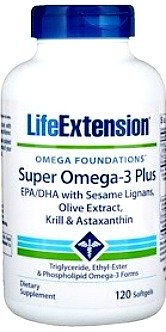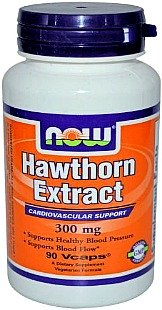The things you need to know about heart bypass surgery and how to avoid it
Heart bypass surgery is a procedure used to make another route for oxygen rich blood to travel through the heart. This way, the blockage is avoided but not removed.
High cholesterol, unbalanced hormones responsible for blood coagulation such as estrogen and progesteron as well as high fat diets can lead to atherosclerosis and blood clots.
As a consequence of all this, coronary arteries, also known as arteries of the heart muscle, get clogged. Blocked coronary arteries can lead to heart attack, dying of the heart tissue and even death.
Bypass surgery is used to treat coronary artery disease as well as to relieve chest pain and shortness of breath which is caused by blocked coronary arteries.
HOW IS HEART BYPASS SURGERY PREFORMED
The goal of the bypass surgery is to bridge blocked arteries in the heart. However, to do so, the surgeon needs a new piece of blood vessels. These blood vessels are taken from the chest, forearm or more commonly, from the leg. The body has a few "spare" blood vessels which can be removed and used for purposes such as this one, without endangering our health.
The procedure is done with general anesthesia because of which you don't remember and feel anything during the heart bypass surgery. The surgeon will make an incision in the middle of the chest and seperate your breast bone, in order to get to the heart and coronary arteries.
From this point on, there are two options. Your heart can be stopped for about 30-90 minutes, while the machine does its job by adding oxygen and pumping oxygen rich blood through the body.
On the other hand, if a person experiences problems while on the heart-lung machine, the surgery can be preformed without stopping the heart.
After the new vein, the graft, is in place, the surgeon will close breastbone with wire and tissue with stitches. Procedure lasts from 4 to 6 hours, after which you are taken to the intensive care unit, for recovery and observation.
HEART BYPASS SURGERY - RECOVERY PROCESS AND PROGNOSIS
It takes some time, usually 3 to 6 months and sometimes longer, to recover from the surgery. After 4 to 6 weeks, you will start feeling better. However, it all depends on your age, diet, stress and the condition of your body. Surgery is not always permanent solution since the graft can sometimes close, in which case, another surgery is required.
Also, arteries in the heart can get clogged, again. This primarily depends on foods you eat, activity level, blood pressure values, hormones, smoking habits as well as on your blood sugar, cholesterol and triglycerides levels.
If you have some other form of disease, besides diabetes, such as kidney or liver disease, then the risk of relapse, increases. Kidneys have a great role in regulating blood pressure while the liver, along with gallbladder, is responsible for producing and processing cholesterol.
However, new artery can work well for years, especially if you take care of yourself.
THE RISKS OF HEART BYPASS SURGERY
As any surgery, especially a procedure complex as this one, has risks. This may include:
HOW TO PREPARE FOR HEART BYPASS SURGERY
Before any surgery, it is important to tell your doctor which medications or supplements you are taking. They can affect blood clotting, heart function or a vital organs which can cause life threatening problems, during the surgery, such as bleeding. The doctor will determine what you can take and what not to take, 10 to 15 days before as well as on the day of the surgery.
Make sure to shower before the heart bypass surgery. You may even get a special soap to disinfect your skin more thoroughly, especially the chest area, in order to decrease the risk of infection, after the surgery. If you have a fever, flu, you are feeling weak because of some other viral disease or something else, contact your doctor. There is a good chance that the surgery will be postponed, for your own safety.
It would be great if you stick to healthy diet before the surgery. However,you will most likely be told to avoid foods and liquids, after midnight, the night before the surgery. If your mouth gets dry, you can rinse it with water but don't swallow it unless told otherwise.
If you smoke, try to quit, at least a week before and after the surgery. Also, organize your home for the time you will be home, recovering from the surgery.
WHAT TO EXPECT AFTER THE HEART BYPASS SURGERY
After the surgery, you will stay for about a week in the hospital for recovery and observation. You will also be attached to the devices which will monitor your heart rate, blood pressure, temperature and few other vital signs.
A couple tubes will be in your chest, in order to drain the accumulated fluid around your heart but they are usually removed one to three days later.
Nurse may even attach a catheter to drain the urine. If the situation requires, IV can also be attached to your arm, in order to administer the medications or the fluids intravenously, if needed.
CONCLUSION
If there is need to make three or even four new grafts, four new routes, for blood to flow through the heart then it is called triple or quadruple heart bypass surgery. This makes the procedure even more complicated, longer and riskier due to its complexity.
There is also minimally invasive bypass surgery which has several benefits but it is up to your doctor to determine if you are a candidate for this type of procedure. It is mainly used on people whose heart may be to weak for traditional bypass surgery or due to some other condition.
Since it is preformed with smaller incision, there is less risk involved. This includes faster recovery, less bleeding and smaller risk of infection and post surgery complications.
Although, heart bypass surgery can be very effective and for some people only valuable option, if you take care of yourself, even if you are a candidate for these type of surgery in the future, there is a good chance that you won't need it or at very least prolong the time till the surgery.
Work on lowering your cholesterol, blood sugar levels, fat percentage and on balancing your hormones as well as your immune system.
- Heart Healthy Diet: Simple Tips and Guidelines
- Learn everything you need to know about heart healthy diet and find the right one for you. Implement few simple tips for immediate benefits.
- Heart Healthy Foods: How to Get the Most from Them
- Heart healthy foods can improve cardiovascular system function. Foods good for the heart are bursting with vitamins, minerals and rejuvenating phytochemicals.
- Herbs for the Heart and Cardiovascular System
- You have heard for hawthorn and garlic but there are few other herbs for the heart which can help in treating heart disease, naturally.
- The Best Heart Health Supplements
- Besides fish oil, there are several heart health supplements which can be useful. This includes Coenzyme Q10, Salicin, vitamin D3 and few others.
- Heart Healthy Spices
- Although there are many heart healthy spices out there, each of them can help prevent and treat heart disease in its own way, thanks to different types of flavonoids in these heart spices.
- Stress and Heart Disease: How are They Connected
- Stress and heart disease are closely related. In order to decrease the risk of heart problems, we have to learn how to handle the stress and treat its consequences, if we are unable to avoid it.
- Cardio Exercises for the Heart and Cardiovascular System
- Cardio exercises are vital part of natural heart disease treatment. However, which kind of heart exercise you should preform, varies from person to person.
- Good vs Bad Cholesterol: How to Improve Cholesterol Values
- Good vs bad cholesterol conflict is somewhat misunderstood. There is no good or bad cholesterol but only high or unbalanced cholesterol.
- Good Fats vs Bad Fats: Nutritional Facts and Guidelines
- What is the real truth when it comes to good fats vs bad fats? How much dietary fats should you consume daily and what are the best food sources of healthy fats?
- High Blood Pressure Remedies
- High blood pressure remedies range from tips and lifestyle modification to herbs and supplements. However, the method that works for someone else, may not work for you.
- Normal Heart Rate: How is Regulated and Influential Factors
- Normal heart rate varies from person to person. Although, age affects resting heart rate, there are many other factors that can raise or decrease heart rate.
- How to Lose Fat: Overlooked Tips for Weight Loss
- How to lose fat is surely one of the most intriguing questions for so many people. However, the answer is very simple. Eat healthy foods, perform fat burning exercises and take care of your hormones.
- Hormones and Heart Disease Connection
- Don't neglect hormones and heart disease connection. If you want to treat or prevent heart disease you have to balance your hormones.
- Heart Disease and Immune System Connection
- Heart disease and immune system connection is often overlooked, while trying to improve cardiovascular system function. However, there are several things you can do to change this.
- Dental Health Heart Disease Connection: Facts and Tips
- Dental health heart disease connection is one of three overlooked factors, along with hormones and immune system. However, with smart and effective approach we can change this.
- Causes of Heart Disease
- There are many causes of heart disease and factors that can increase or decrease your risk for developing heart related problems. Check how to turn the tide in your favour.
- Symptoms of Heart Disease
- There are few main symptoms of heart disease. Find out which are they, how to recognize them as well as my personal experience with some of them.
- Diagnosis of Heart Disease
- Accurate diagnosis of heart disease is the first step toward recovery. You can't start with treatment before you know what kind of disease you have, obviously.
- Treatment for Heart Disease: Medications and Surgeries
- Standard treatment for heart disease consists of surgeries, medications and devices. Which one is right for you, depends on your condition.
- Heart Disease Blog
- This is a blog about natural remedies, personal stories, helpful herbs and supplements, workout program as well as other tips and facts which may help people faced with heart disease.
- Contact Me
- Ask questions and leave comments about this site here.
- About the Author of Heart Health Guide
- About the author of Heart-health-guide.com website.
- Heart Health Guide Sitemap
- This is sitemap of Heart Health Guide.com. If you want to get better overview of informations on this website, you can get it here.
Copyright © - Heart Health Guide - All Rights Reserved.



